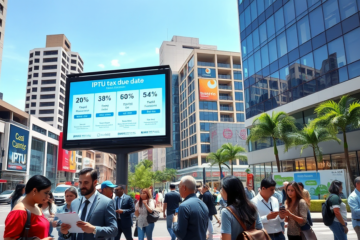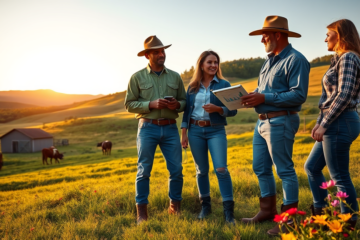Reverse Logistics and Plastics Sustainability
Reverse Logistics is an increasingly relevant topic in the context of sustainability, especially in Brazil.
In this article, we will explore the targets established for the reuse and recycling of plastic packaging, highlighting the importance of the commitment to collect and recycle 50% of this packaging by 2040. With an intermediate target of 32% by 2026 and a significant increase in reuse, we will address the vital role of waste picker cooperatives and associations, as well as the responsibility of manufacturers in the proper disposal of sorted waste.
We will also discuss initiatives that encourage consumer involvement in environmental education and responsible disposal.
Fundamentals and Objectives of the Reverse Logistics System
The Reverse Logistics System for plastic packaging in Brazil is a important instrument to promote environmental and economic sustainability, within the broader context of the circular economy.
This system aims to transform waste that would otherwise be discarded into new resources, reducing the need for virgin raw materials.
This prevents pollution and reduces the environmental impact caused by the accumulation of plastic packaging.
One of the objectives main is to achieve significant collection and recycling.
The established goal is to recycle 50% of all plastic packaging by 2040, with an intermediate objective of 32% until 2026.
These goals not only encourage the adoption of sustainable practices, but also promote a culture of reuse and recycling, which is essential for economic sustainability.
Furthermore, the system foresees an increase in the reuse of packaging, going from 22% to 40% by 2040.
The active participation of manufacturers, cooperatives and waste picker associations is essential in this process, as is raising consumer awareness through responsible disposal initiatives.
According to the Government, “transforming waste into resources is the key to a more sustainable economy.”
Collection, Recycling and Reuse Goals
Brazil is advancing in the implementation of Reverse Logistics System for Plastic Packaging, with clear goals for 2040. This system aims to increase the collection, recycling, and reuse of plastic packaging, with cooperatives and associations of waste pickers being fundamental to this evolution.
The established goals are ambitious and progressive, aiming for more sustainable management of plastic waste.
Quantitative targets include the collection and recycling of 32% until 2026, reaching 50% by 2040, and reuse that should increase from 22% to 40% in the same period.
- 32% by 2026 – collection and recycling
- 50% by 2040 – collection and recycling
- 22% for 40% until 2040 – reuse
Manufacturers play a crucial role in the proper disposal of sorting waste, and consumers are encouraged to actively participate in disposal and environmental education initiatives.
When visiting the Brazilian government website, you can find detailed information on how this ambitious plan will unfold in the coming years.
This strategy aims not only to improve plastic waste management but also to promote a more circular economy, reducing environmental impact.
Social and Operational Engagement in the System
Social and operational engagement is essential to the success of the Plastic Packaging Reverse Logistics System.
Cooperatives and collectors play a vital role in collection and sorting, ensuring that packaging is properly recycled.
The active participation of consumers, through conscious disposal and environmental education, is equally important to strengthen this system.
Role of Cooperatives and Waste Pickers' Associations
Cooperatives It is collectors' associations play a crucial role in the reverse logistics of plastic packaging, working on the collection, sorting and correct disposal of these materials.
Your contribution to recycling is significant, as it allows for a reduction in waste sent to landfills and contributes to environmental sustainability.
Furthermore, they promote environmental and economic benefits, supporting the recovery of the citizenship of waste pickers by providing more dignified and structured working conditions.
With active participation in reverse logistics, collectors' associations not only generate employment and income, but also educate society about the importance of sustainable practices.
Through selective collection, these entities become protagonists in the recovery of materials, helping to close the cycle of the circular economy.
Furthermore, they raise environmental awareness, encouraging a cultural change in the way society deals with waste.
Thus, the integration of these initiatives not only sustains the economy, but also strengthens the commitment to a more sustainable future.
Consumer Participation and Environmental Education
The active participation of consumers in reverse logistics system for plastic packaging is vital to achieving the recycling targets set by Brazil.
The need for correct disposal stands out as an essential step to prevent the accumulation of waste in landfills.
Thus, manufacturers and public bodies promote environmental education actions that encourage proper disposal practices.
These initiatives not only inform about environmental benefits, but also create a more conscious consumption awareness.
One effective strategy is to create collection points in supermarkets that make it easier for consumers to return packaging.
As mentioned in the article on the importance of the consumer's role, such practices rescue the notion of shared responsibility.
Additionally, educational campaigns disseminated through social media and printed materials emphasize how small, everyday actions can positively impact the environment.
Environmental awareness It therefore becomes a powerful tool for mobilizing society, promoting a cultural transformation that values sustainability and the circular economy.
With community support, recycling and reuse goals become more achievable, contributing to a more sustainable future.
Responsibility of Manufacturers and Management of Sorting Waste
O fundamental role of manufacturers in the Plastic Packaging Reverse Logistics System is to ensure that the waste generated during sorting is treated and disposed of in an environmentally appropriate manner.
This responsibility not only complies with the obligations established by National Solid Waste Policy, but also contributes significantly to environmental protection, avoiding the risk of soil and water contamination.
By applying strict control techniques and advanced technology, manufacturers must ensure that all non-recyclable materials are properly disposed of at appropriate disposal sites.
Informing and involving consumers in the process is crucial, as collaboration between all parties—including manufacturers, importers, and consumers—maximizes the efficiency of the system.
Thus, shared responsibility is reflected in a more efficient and sustainable waste management system.
Below is a table outlining some of the steps and obligations of manufacturers:
| Stage | Manufacturer's Obligation |
|---|---|
| Screening | Separate and classify waste correctly |
| Disposal | Forward non-recyclable waste to appropriate destinations |
This practice is vital not only to achieve recycling goals, but also to establish a sustainable life cycle for plastic packaging and strengthen environmental policies in Brazil.
In summary, Reverse Logistics for Plastic Packaging is essential for a more sustainable future in Brazil.
With the collaboration of everyone involved, it is possible to achieve the established recycling and reuse goals, promoting a more responsible consumption cycle.



0 Comments